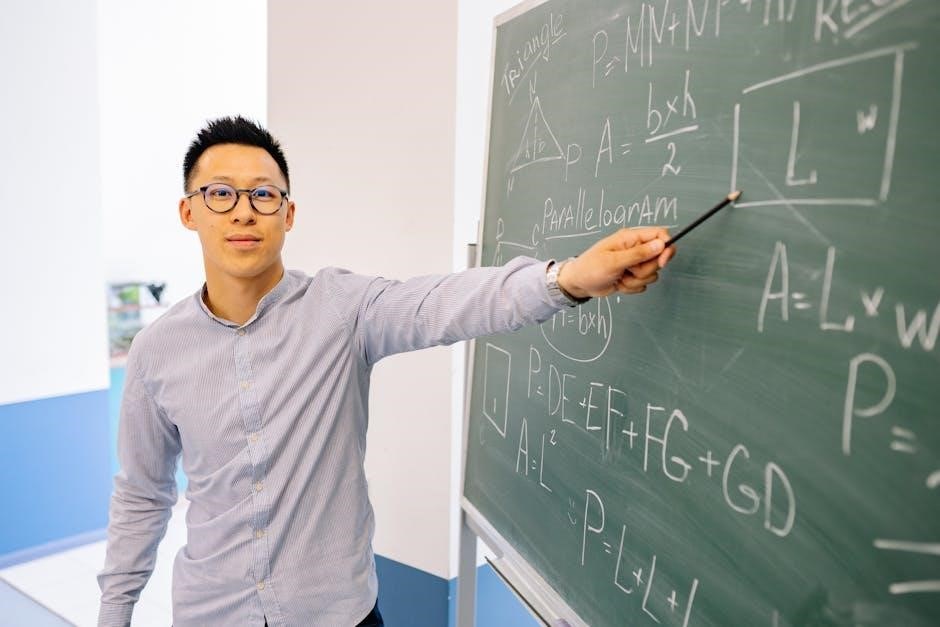Learning theories in education pdf provide essential resources for educators,
explaining
how students learn and develop new skills and knowledge effectively always online.
Overview of Learning Theories
Learning theories in education pdf offer a comprehensive overview of the different approaches to learning, including behaviourism, cognitivism, and constructivism.
These theories provide a framework for understanding how students learn and develop new skills and knowledge.
Theories of learning have been extensively researched and documented, with many educators and psychologists contributing to the field.
A thorough understanding of learning theories is essential for educators to create effective learning environments and tailor their teaching methods to meet the needs of their students.
By examining the various learning theories, educators can gain insights into the complexities of the learning process and develop strategies to improve student outcomes.
The study of learning theories is an ongoing field of research, with new discoveries and advancements being made regularly.
Learning theories in education pdf provide a valuable resource for educators, researchers, and students alike, offering a wealth of information on the subject.
The overview of learning theories serves as a foundation for further exploration and study, enabling individuals to delve deeper into the topic and explore its many facets.
Overall, the overview of learning theories is a crucial component of education, informing teaching practices and contributing to the development of effective learning strategies.

Types of Learning Theories
Learning theories in education pdf include behaviourism, cognitivism, constructivism, and neuro-education, each with unique perspectives on learning processes and educational methods always online effectively.
Behaviourism, Cognitivism, Constructivism and Neuro-Education
Behaviourism focuses on observable behaviour, while cognitivism explores mental processes and constructivism emphasizes individual interpretation of experiences. Neuro-education applies neuroscientific research to educational practices, informing teaching methods and learning strategies.
These theories are essential in understanding how students learn and develop new skills, and educators can apply them to create effective learning environments and instructional techniques, ultimately enhancing student outcomes and academic achievement.
By examining these theories, educators can design curricula and instructional materials that cater to different learning styles and abilities, promoting a more inclusive and supportive learning environment that fosters academic success and personal growth for all students.
The integration of behaviourism, cognitivism, constructivism, and neuro-education in educational practices has the potential to revolutionize the way we teach and learn, leading to improved academic outcomes and a more nuanced understanding of the complex learning process.

Key Theorists and Their Contributions
Theorists like Piaget and Vygotsky contribute significantly to learning theories in education pdf online resources always available for educators.
Theories of Piaget, Bandura, Vygotsky, Kohlberg, Dewey, Bronfenbrenner, Eriksen, Gardner, Bloom, and Maslow
Theories of Piaget, Bandura, Vygotsky, Kohlberg, Dewey, Bronfenbrenner, Eriksen, Gardner, Bloom, and Maslow are covered in learning theories in education pdf, providing a comprehensive overview of educational psychology.
These theorists have contributed significantly to our understanding of human development and learning, with their theories being widely used in educational settings.
Theories such as Piaget’s cognitive development theory and Vygotsky’s social constructivist theory have had a profound impact on education, influencing teaching methods and learning strategies.
Additionally, theorists like Bandura and Kohlberg have made significant contributions to our understanding of social learning and moral development.
Their theories are essential for educators, policymakers, and researchers, providing a foundation for effective teaching and learning practices.
By understanding these theories, educators can create learning environments that cater to the diverse needs of students, promoting academic achievement and personal growth.
The learning theories in education pdf resource is an essential tool for anyone involved in education, providing a thorough understanding of the key theories and their applications.
This knowledge can be used to improve educational outcomes, informing instruction and assessment practices that support student learning and development.
Overall, the theories of these prominent educators have shaped our understanding of learning and development, continuing to influence education today.

Importance of Learning Theories in Education
Learning theories in education pdf are crucial for improving learning outcomes and understanding the learning process effectively always online educational settings and resources available.
Improving Learning Outcomes and Understanding the Learning Process
Learning theories in education pdf play a vital role in improving learning outcomes and understanding the learning process, as they provide educators with a framework for designing effective instructional strategies and assessments.
By understanding how students learn, educators can create learning environments that cater to different learning styles and abilities, leading to improved academic achievement and increased student motivation.
Theories of learning also help educators to identify areas where students may be struggling and provide targeted support to address these challenges, ultimately leading to better learning outcomes.
Furthermore, learning theories in education pdf can inform the development of educational policies and programs, ensuring that they are grounded in a deep understanding of the learning process and are designed to support the diverse needs of all learners.
Overall, the application of learning theories in education has the potential to transform the way we approach teaching and learning, leading to improved learning outcomes and a more effective education system.

Cognitive and Constructivist Views of Learning
Cognitive and constructivist views of learning focus on mental processes and personal construction of knowledge always through education and online resources available today everywhere.
Social Cognitive Theory, Information Processing Theory, Constructivism, and Cognitive Learning Processes
Social cognitive theory explains how people learn from observing others and the environment around them, including online resources and social media platforms. Information processing theory focuses on how people process and retain information in their minds. Constructivism is a theory that suggests people construct their own knowledge and understanding through experiences and interactions. Cognitive learning processes refer to the mental processes involved in learning, such as attention, perception, and memory. These theories are all connected and can be applied to education to improve learning outcomes. By understanding how people learn and process information, educators can design more effective instructional strategies and materials, including online resources and educational technologies. The internet provides a wealth of information on these topics, including learning theories in education pdf documents and online courses. Educators can use this information to stay up-to-date on the latest research and best practices in education.
